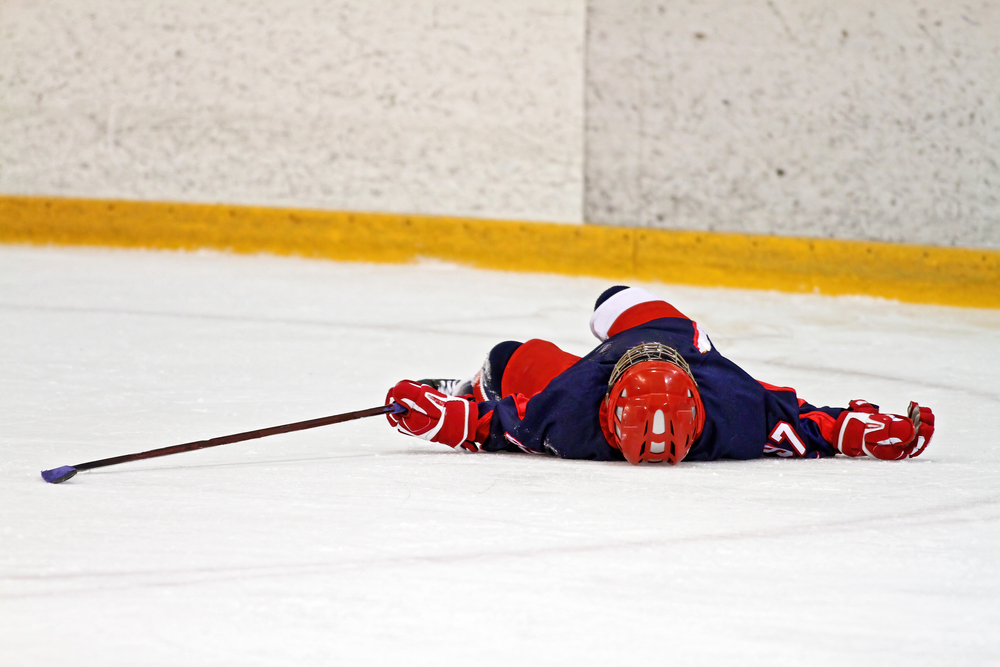Table of
Contents
Use the links to navigate to the section you want to skip to!

Concussions & Depression
Research has indicated that individuals who have experienced a concussion are more likely to develop symptoms of depression. This association is multifaceted and can be attributed to several factors:
Disruption of Brain Function
When a concussion occurs, the brain undergoes a temporary disruption in its normal functioning. This disruption can impact neurotransmitters, which are chemicals that transmit signals in the brain. Neurotransmitters play a crucial role in regulating mood, and any disturbance in their balance can lead to depressive symptoms.
Physical and Psychological Effects
Concussions can bring about a range of physical and psychological effects that contribute to the development of depression. Individuals who have suffered a concussion may experience persistent pain, headaches, and fatigue, which can be physically distressing and emotionally draining. These physical symptoms can also limit their ability to engage in everyday activities, causing frustration and a sense of loss, which can exacerbate feelings of depression.
Social Isolation
In many cases, those who have sustained concussions are advised to rest and avoid strenuous physical and cognitive activities during their recovery. This period of rest may lead to social isolation, as individuals may have to withdraw from their usual social and recreational activities. This isolation can lead to feelings of loneliness and sadness, further contributing to the development of depressive symptoms.
Concussions & Anxiety
Anxiety issues like PTSD (Post-Traumatic Stress Disorder) and GAD (Generalized Anxiety Disorder) have also been linked to concussions. Trauma to the brain may cause the stress response system to become overactive, which would worsen anxiety symptoms. Anxiety can also be exacerbated by worries about the long-term effects of the concussion or fears of re-injury.

ONLINE CONCUSSION TEST
Think You Have a Concussion?
If you or someone you know is dealing with a sports concussion, don't wait. Come to Broadview Spine and Health Clinic in Ottawa for specialized treatment and rehabilitation. Our experienced team is dedicated to helping you recover
Take Our Online Test!Concussions & Mood Swings
Concussions, often referred to as mild traumatic brain injuries (mTBIs), can have a significant impact on various aspects of brain function, including emotional regulation. The brain is a complex organ responsible for managing emotions, and when it sustains an injury like a concussion, its ability to perform this function may be compromised.
Abrupt and Strong Mood Swings
One of the notable effects of concussions on emotional regulation is the occurrence of abrupt and strong mood swings. These mood swings are characterized by rapid and sometimes unpredictable shifts between different emotional states. Individuals who have experienced a concussion may find themselves going from feeling relatively calm and composed to suddenly experiencing intense emotions such as anger, sadness, or anxiety.
Factors Contributing to Mood Swings
Several factors contribute to the development of mood swings following a concussion:
Brain Trauma
The primary cause of mood swings in concussion cases is the trauma the brain undergoes during the injury. This trauma can disrupt the normal functioning of brain regions responsible for emotional regulation. It may lead to an imbalance in neurotransmitters, which are chemicals responsible for transmitting signals in the brain, affecting mood stability.
Pain and Discomfort
Concussions often result in physical discomfort, including headaches and pain at the site of the injury. This physical discomfort can exacerbate emotional distress, leading to mood swings. The combination of physical pain and emotional discomfort can be particularly challenging for individuals during their recovery.
Cognitive Changes
Concussions can also lead to cognitive changes, such as difficulties with memory, concentration, and decision-making. These cognitive impairments can be frustrating and may trigger emotional responses, further contributing to mood swings.
Impact on Individuals and Their Relationships
Mood swings following a concussion can be distressing not only for the individual experiencing them but also for those around them, including family members, friends, and caregivers. The sudden and unpredictable shifts in mood can lead to confusion, frustration, and even strain on relationships.
It's essential for individuals who have sustained concussions to be aware of these potential emotional challenges and seek appropriate medical and psychological support. Healthcare professionals can provide strategies for coping with mood swings, which may include stress management techniques, cognitive-behavioral therapy, and, in some cases, medications to help stabilize mood.

Concussions & Sleep Disturbances
Many people who have concussions notice changes in their sleeping habits. These alterations might take the form of sleep disturbances, trouble falling asleep, or excessive daytime drowsiness. Sleep is essential for general mental health, and sleep disorders can make other mental health issues worse.
Concussions & Cognitive Challenges
Concussions can hamper cognitive processes including memory, concentration, and processing speed. Concentration issues, learning problems, and difficulty solving problems might result from these cognitive deficits. When people encounter these cognitive difficulties, it can lead to irritation, tension, and a feeling of low self-esteem, which could perhaps exacerbate mental health problems.









